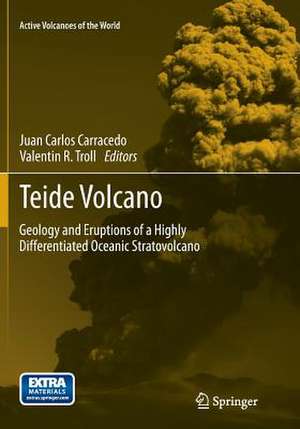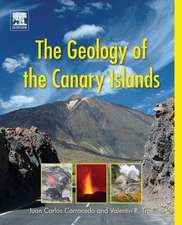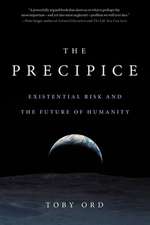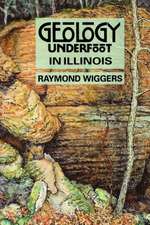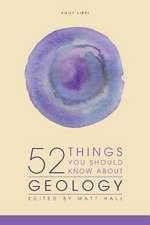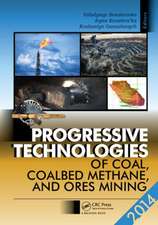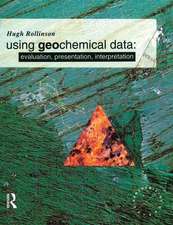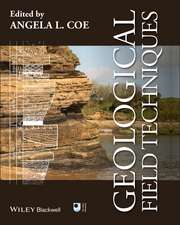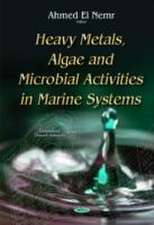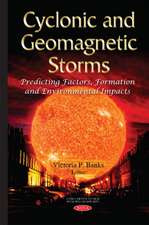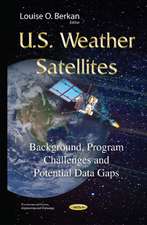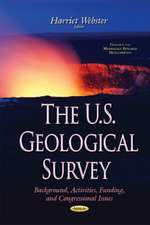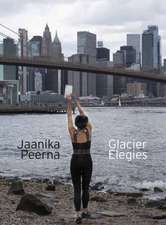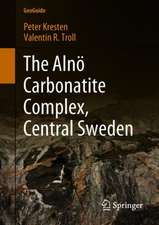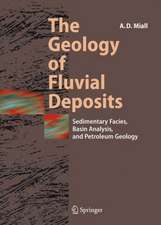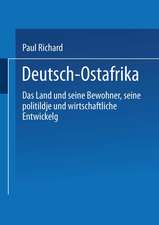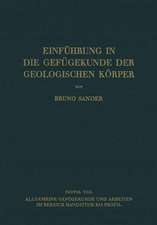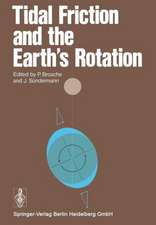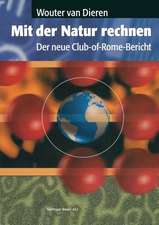Teide Volcano: Geology and Eruptions of a Highly Differentiated Oceanic Stratovolcano: Active Volcanoes of the World
Editat de Juan Carlos Carracedo, Valentin R. Trollen Limba Engleză Paperback – 30 apr 2017
| Toate formatele și edițiile | Preț | Express |
|---|---|---|
| Paperback (1) | 1002.44 lei 43-57 zile | |
| Springer Berlin, Heidelberg – 30 apr 2017 | 1002.44 lei 43-57 zile | |
| Hardback (1) | 1008.91 lei 43-57 zile | |
| Springer Berlin, Heidelberg – 20 apr 2013 | 1008.91 lei 43-57 zile |
Preț: 1002.44 lei
Preț vechi: 1222.48 lei
-18% Nou
Puncte Express: 1504
Preț estimativ în valută:
191.88€ • 208.49$ • 161.28£
191.88€ • 208.49$ • 161.28£
Carte tipărită la comandă
Livrare economică 21 aprilie-05 mai
Preluare comenzi: 021 569.72.76
Specificații
ISBN-13: 9783662507711
ISBN-10: 3662507714
Pagini: 279
Ilustrații: XIV, 279 p. 234 illus., 222 illus. in color.
Dimensiuni: 178 x 254 x 16 mm
Greutate: 0.52 kg
Ediția:Softcover reprint of the original 1st ed. 2013
Editura: Springer Berlin, Heidelberg
Colecția Springer
Seria Active Volcanoes of the World
Locul publicării:Berlin, Heidelberg, Germany
ISBN-10: 3662507714
Pagini: 279
Ilustrații: XIV, 279 p. 234 illus., 222 illus. in color.
Dimensiuni: 178 x 254 x 16 mm
Greutate: 0.52 kg
Ediția:Softcover reprint of the original 1st ed. 2013
Editura: Springer Berlin, Heidelberg
Colecția Springer
Seria Active Volcanoes of the World
Locul publicării:Berlin, Heidelberg, Germany
Cuprins
From Myth to Science: The Contribution of Mount Teide to the Advancement of Geology and Volcanology.- Geological and Geodynamic Context.- The Teide Volcanic Complex (TVC): Physical Environment and Geomorphology.- Structural and Geological Elements: Rift-Zones and Gravitational Collapses.- Precursors of the TVC: The Northeast Rift Zone (NERZ).- Dating the Teide Volcano: Radiometric Ages and Paleomagnetism.- Volcanic History: Geochronology and Stratigraphy of the TVC.- The Latest 2 Ky of Eruption Activity of the TVC: Features and Trends.- Timing and Distribution of the Petrological Evolution of the Teide-Pico Viejo Volcanic System.- Magmatic Differentiation in the Teide-Pico Viejo Succession - Isotope Analysis as Key to Decipher Crustal Assimilation in the Origin of Phonolite Magma.- Magma mixing in the 1100 AD Montana Reventada composite lava flow: Interaction of rift zone dykes and central volcano magma chambers.- Eruptive Mechanism at the TVC.- Geophysics.- Geological hazards in the TVC.
Recenzii
From the reviews:
“This book – the first in English summarising Teide’s geology and associated hazards – is particularly welcome for me. I’m sure it will be equally welcome to other geologists, amateur and professional, who visit Tenerife. The book is well illustrated with numerous colour images and is comprehensive in nature … . There is a full reference list for each chapter, a comprehensive index and biographies of the chapter authors.” (Linda Fowler, Open University Geological Society Journal, Vol. 34 (2), 2014)
“Teide Volcano, is an excellent work that is detailed enough to be a reference book on the shelf of any volcanologist. The easy to understand style of the book means that it could equally be a general guidebook for a geotourist wishing to plan a trip to Teide. I can recommend this book to anyone with a reasonably good earth science background and a general interest in volcanic geology.” (Károly Németh, Bulletin of Volcanology, Vol. 75, 2013)
“This book – the first in English summarising Teide’s geology and associated hazards – is particularly welcome for me. I’m sure it will be equally welcome to other geologists, amateur and professional, who visit Tenerife. The book is well illustrated with numerous colour images and is comprehensive in nature … . There is a full reference list for each chapter, a comprehensive index and biographies of the chapter authors.” (Linda Fowler, Open University Geological Society Journal, Vol. 34 (2), 2014)
“Teide Volcano, is an excellent work that is detailed enough to be a reference book on the shelf of any volcanologist. The easy to understand style of the book means that it could equally be a general guidebook for a geotourist wishing to plan a trip to Teide. I can recommend this book to anyone with a reasonably good earth science background and a general interest in volcanic geology.” (Károly Németh, Bulletin of Volcanology, Vol. 75, 2013)
Textul de pe ultima copertă
Teide Volcano has many different meanings: For the Guanche aborigines, who endured several of its eruptions, it was Echeide (Hell). Early navigators had in Teide, a lifesaving widely visible landmark that was towering over the clouds. For the first explorers, Teide was a challenging and dangerous climb, since it was thought that Teide's peak was so high that from its summit the sun was too close and far too hot to survive. Teide was considered the highest mountain in the world at that time and measuring its height precisely was a great undertaking and at the time of global scientific significance. For von Buch, von Humboldt, Lyell and other great 18th and19th century naturalists, Teide helped to shape a new and now increasingly 'volcanic' picture, where the origin of volcanic rocks (from solidified magma) slowly casted aside Neptunism and removed some of the last barriers for the development of modern Geology and Volcanology as the sciences we know today. For the present day population of Tenerife, living on top of the world's third tallest volcanic structure on the planet, Teide has actually become "Padre Teide", a fatherly protector and an emblematic icon of Tenerife, not to say of the Canaries as a whole. The UNESCO acknowledged this iconic and complex volcano, as "of global importance in providing evidence of the geological processes that underpin the evolution of oceanic islands". Today, 'Teide National Park' boasts 4 Million annual visitors including many 'volcano spotters' and is a spectacular natural environment which most keep as an impression to treasure and to never forget. For us, the editors of this book, Teide is all of the above; a 'hell of a job', a navigation point on cloudy days, a challenge beyond imagination, a breakthrough in our understanding of oceanic volcanism that has shaped our way of thinking about volcanoes, and lastly, Teide provides us with a reference point from where to start exploring other oceanic volcanoes in the Canaries and beyond. Here we have compiled the different aspects and the current understanding of this natural wonder.
Caracteristici
The book represents the first compilation of scientific research on Teide volcano in English It provides useful information for scientific groups working on Teide volcano or in comparable geological settings The numerous illustrations of this spectacular volcano, visited by 3 million persons annually, enable a better understanding of the scientific results presented in this book Includes supplementary material: sn.pub/extras
